September 09, 2021 at 11:20PMEliana Dockterman
We’re finally returning to the Matrix. The first trailer for The Matrix Resurrections, the much anticipated fourth entry in the seminal series, dropped on Thursday, and in classic Matrix fashion, it raises more questions than it offers answers. All the better that the plot remain a mystery before the film’s premiere in December.
What we do know is that Resurrections parallels the original Matrix film in many ways. In the trailer, we find out that Keanu Reeves‘ Neo and Carrie-Anne Moss’ Trinity are back inside the Matrix. Considering that both of these characters died in the third film, why they are still alive or whether these are even the same characters we met back in 1999 is up for debate. More curious still, Neo and Trinity both seem to have aged, while other characters in the film look to be younger versions of the characters we met in the original trilogy.
[time-brightcove not-tgx=”true”]
If this is the same Neo from the original trilogy, he seems to have forgotten that he is the chosen one. He will need to journey back down the rabbit hole again. To that end, it looks like we will get new riffs on the iconic red pill/blue pill scene and the dojo scene, among other nods to the original film.
Fans are already excited by the prospect of returning to many of the most famous moments from the original film. But knowing filmmaker Lana Wachowski, co-creator of the original Matrix trilogy along with Lilly Wachowski, the parallels between the two movies don’t just exist for the sake of fan service. They’re almost certainly making a larger philosophical point. From this trailer alone, it seems Wachowski, who is co-writing and directing Resurrections, is interested in exploring themes like how technology has gained an even greater hold over us since the original trilogy debuted.
Here is everything that we know about Matrix Resurrections so far.
The Matrix Resurrections trailer breakdown

In the trailer, we meet an older Neo, sporting his John Wick haircut, living within the Matrix under the name Thomas Anderson (his name from the first film before he unplugs from the Matrix and becomes Neo). He doesn’t seem to be aware that he is living inside a simulation. He is leading a normal, if depressed, life, seeing a therapist and popping dozens of blue pills (more on those later). He sees a black cat, just as he saw one when he learned about deja vu in the original film.
Neo seems aware that something is amiss, telling the therapist, played by Neil Patrick Harris, “I’ve had dreams that weren’t just dreams.” As he says this, we see a shot of Neo walking along a street with the signature Matrix green coding scrolling along it. We then see flashes of several action shots, including one of Neo being unplugged from the Matrix.
Fans will recall that both Neo and his love Trinity died in the third Matrix film, Matrix Revolutions. Yet somehow they’re both still alive in this trailer. Neo encounters Trinity in a coffee shop, and the two shake hands. Trinity asks if they’ve ever met before. It seems like they have some memory of their past that has been erased.
And here come the pills. Neo is popping blue pills like candy. Even the most casual Matrix fan will recall that in the first movie Morpheus (played by Laurence Fishburne) offers Neo a blue pill and a red pill. The blue pill would return him to his normal life in the Matrix and help him forget he was living in a simulation. The red pill would take him further down the “rabbit hole,” and reveal the truth of his existence. Neo chooses red. But now he’s popping blue pills. They may be just a symbol of Neo trying to escape his depressing reality (and perhaps a commentary on our reliance on prescription medications) or these may literally be the pills that keep him from remembering what happened when he left the Matrix, whether he knows that’s what they’re doing or not.
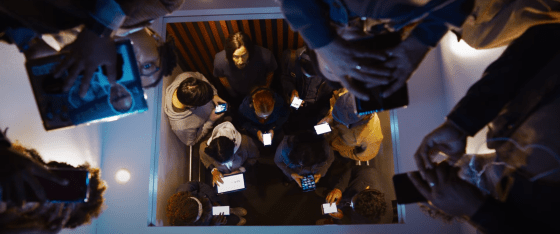
We get a shot of a bunch of people in an elevator staring at their phones while Neo stares upwards, obviously disturbed. Wachowski is no doubt nodding to the fact that we are now, more than ever, dependent on machines and technology, far more so than when The Matrix premiered in 1999. And while at the end of the original Matrix trilogy, the humans and machines had come to a tentative peace in their war against one another, the machines may have subtly regained more control than humans have even realized. Thanks, iPhones!
We also get a quick shot of the book Alice in Wonderland, a movie heavily referenced in the first film. In that movie, Morpheus offers to take Neo “down the rabbit hole,” just as Alice started her adventure into a topsy turvy world. White rabbits kept popping up in the movie. In the Resurrection trailer, the song “White Rabbit” by Jefferson Airplane chronicles Alice’s choice between two pills early in her journey—one that would make her big and another that would make her small—a nod to Neo’s own choice between two pills. We also get a reference to Alice in Wonderland’s sequel, Through the Looking-Glass, in the next shot as Neo looks in a mirror and sees what looks to be an older version of himself. Perhaps that’s his future self or true self or someone entirely different? A little bit later in the trailer we see a woman played by Jessica Henwick sporting a rabbit tattoo on her shoulder. A character named Dujour also had a rabbit tattoo in the original movie.
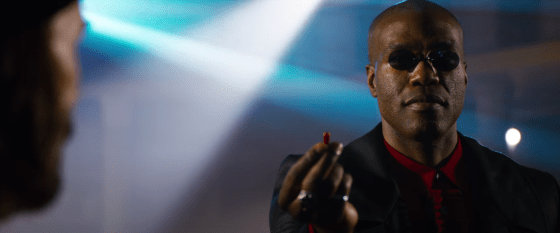
And here’s where things get interesting. Yahya Abdul-Mateen II, wearing Morpheus’ signature sunglasses, holds up a red pill and blue pill to Neo and says, “Time to fly.” Obviously, this scene mimics Neo’s fateful choice in the first film? Is Abdul-Mateen playing Morpheus? Is this whole movie a reboot or a sequel or a prequel or none of those things? (More on those questions later.)
Henwick’s character then tells Neo that if he wants the truth, he’s going to have to follow her, and they walk through (you guessed it) a mirror or looking-glass. Then Abdul-Mateen’s character and Neo speak in a dojo, a recreation of another famous scene from the original film in which Reeves intoned, “I know kung fu” in the most Keanu Reeves way possible. This time around, Abdul-Mateen tells Neo that the only thing that matters to him is “still here.” We see a shot of Trinity with the Matrix code running down her face. So, it seems, Trinity is alive and perhaps exists in the Matrix and now Neo has to fight to save her. “You don’t know me,” says Neo, to which Abdul-Mateen’s character replies, “No?” suggesting, again, that he may be Morpheus or a different version of him, someone who does know Neo well. The two fight and Neo creates so much energy with his fists that he creates an explosion.
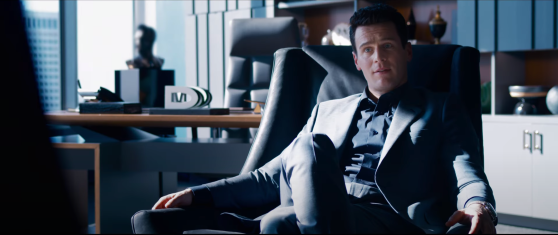
Now we get a series of action shots, among them: Our first look outside of the Matrix; Jessica Henwick pulling off some very Trinity-esque leaps and bounds within the Matrix; a man pointing a gun at Neo; another man, likely an agent like Agent Smith, taking over a police officer’s body; Trinity plugged into the Matrix; Trinity in that same coffee shop we saw earlier screaming; Abdul-Mateen’s character putting his fingers through a looking-glass and pulling back, scared; Abdul-Mateen’s character and Henwick’s character running up walls and dodging bullets; Neo rerouting a missile with his powers; and Neo and Trinity leaping off a building together, hand in hand.
Finally, we meet a character played by Jonathan Groff. “After all these years, going back to where it all started,” he says to Neo, “back to the Matrix.” It’s unclear at this point if Neo does or does not know the Matrix exists. But Groff has a malevolent grin on his face. He seems to be playing a Mr. Smith-type character, if not Mr. Smith himself. Though a teaser for the movie on WhatIstheMatrix.com shows his mouth shut so he can’t speak in the same way Neo’s was in the original film, perhaps suggesting he’s not the one in control.
What happened at the end of Matrix Revolutions?
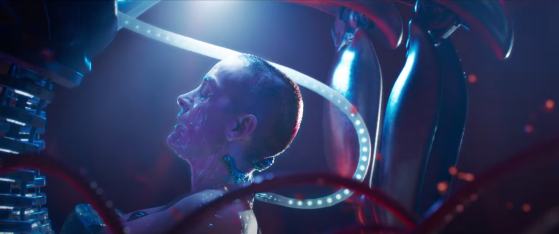
The last time we saw Neo, he had sacrificed himself. In the first Matrix, Neo discovers that what he perceives as the real world is actually the Matrix, a space controlled by sentient machines to subdue humans. He breaks out of the Matrix and discovers that he is “the One,” a prophesied powerful figure. But he’s hunted down by Agent Smith (Hugo Weaving), a program designed to police humans within the Matrix.
By the third movie, Matrix Revolutions, Agent Smith has grown ultra-powerful by absorbing the other beings and has designs to conquer the Matrix himself. Neo teams up with the machines to defeat Agent Smith and returns to the Matrix for a final showdown. During that fight, Neo sacrifices himself so that both he and Agent Smith will die. In his final moments, we see Neo holding his arms out in a Christ-like formation, light bursting from him.
Neo’s death reboots the Matrix. This has happened before—Neo learns that the Matrix has restarted over and over again. But because Neo created an alliance with the machines, it’s implied that the new world will be a more cooperative and peaceful one. This trailer suggests that may not have been the case. At the end of the movie, when asked whether she believes the peace between machines and humans will last, the Oracle responds, “As long as it can.”
Now, it seems that both Neo and Trinity are back in the Matrix—at one point in the trailer, we see Trinity plugged in. Does that mean that humans don’t have the free will to choose whether to live inside or outside the Matrix after all? Or has Trinity changed her mind about living outside the Matrix—maybe it wasn’t all that it was cracked up to be. Or did this version of Trinity never leave the Matrix in the first place?
Is The Matrix Resurrections a prequel, sequel or reboot?
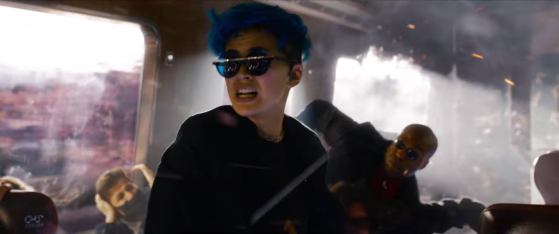
We don’t know, and that’s the fun of it!
When Neo rebooted the Matrix, did he somehow wind up further back in time with younger or parallel-universe versions of Morpheus, Trinity and Agent Smith? Are these totally new characters and people repeating the same actions we know from the first Matrix movie over again? Is Neo even Neo yet or in this film has he not yet discovered that he’s the Chosen One? Or is he taking the blue pills to forget?
This trailer is clearly hiding…something. And fans will have several months to theorize about how Neo wound up back at square one.
How are Neo and Trinity still alive?
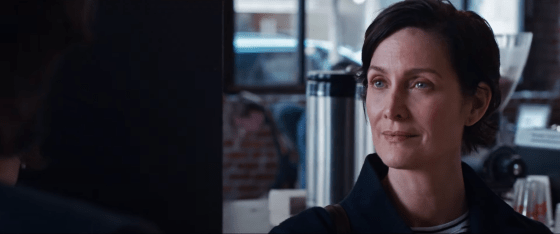
It’s unclear. Both died in the third movie, Trinity in a hovercraft explosion and Neo by sacrificing himself in a fight to defeat Agent Smith.
We do know from the second movie, Matrix Reloaded, that Neo was not unique. He was, in fact, a part of the Matrix’s program and the sixth anomaly within the Matrix. So perhaps the Neo we see in the Matrix Resurrection trailer is a seventh, eighth or ninth anomaly.
But the title seems to contradict that theory. The Matrix was a metaphor for many things—die-hards are still debating what, exactly, it all means—but like Superman and Harry Potter and many other popular heroes, Neo is a Christlike figure who must sacrifice himself for the greater good. And then, inevitably, he’s resurrected. So perhaps this is the same version of Neo, brought back to life somehow by the Source. It looks like we’re now seeing that post-resurrection life, but it’s not the happy or simple ending other stories would have us believe it might be.
Where is Morpheus?
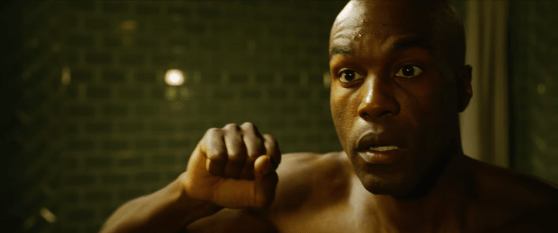
The original Trinity played by Carrie-Anne Moss appears in the trailer—but is she real? A memory? A specter? A vision of the future? Our original Morpheus, however, does not. Laurence Fishburne has insisted over and over again that he was not invited back to appear in the fourth Matrix installment, but that hasn’t stopped fans from theorizing that he will make a surprise appearance.
What’s with the pills?
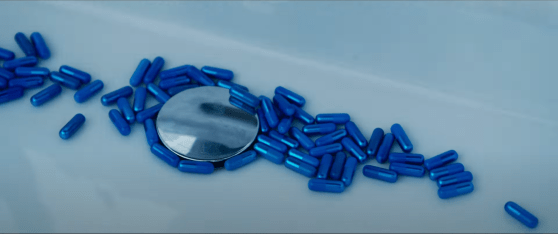
Ah, the red pill and the blue pill, symbols that have lasted literal decades and become common parlance on the Internet to describe all manner of cultural, political and psychological phenomena.
Well, they’re back. According to a teaser video, those pills are called Ontolofloxin. This is likely a reference to Ontology, a branch of philosophy that deals with metaphysics and the nature of being—which is all rather on brand for The Matrix. The fact that Neo is popping these pills suggests that he is having something of a metaphysical crisis.







